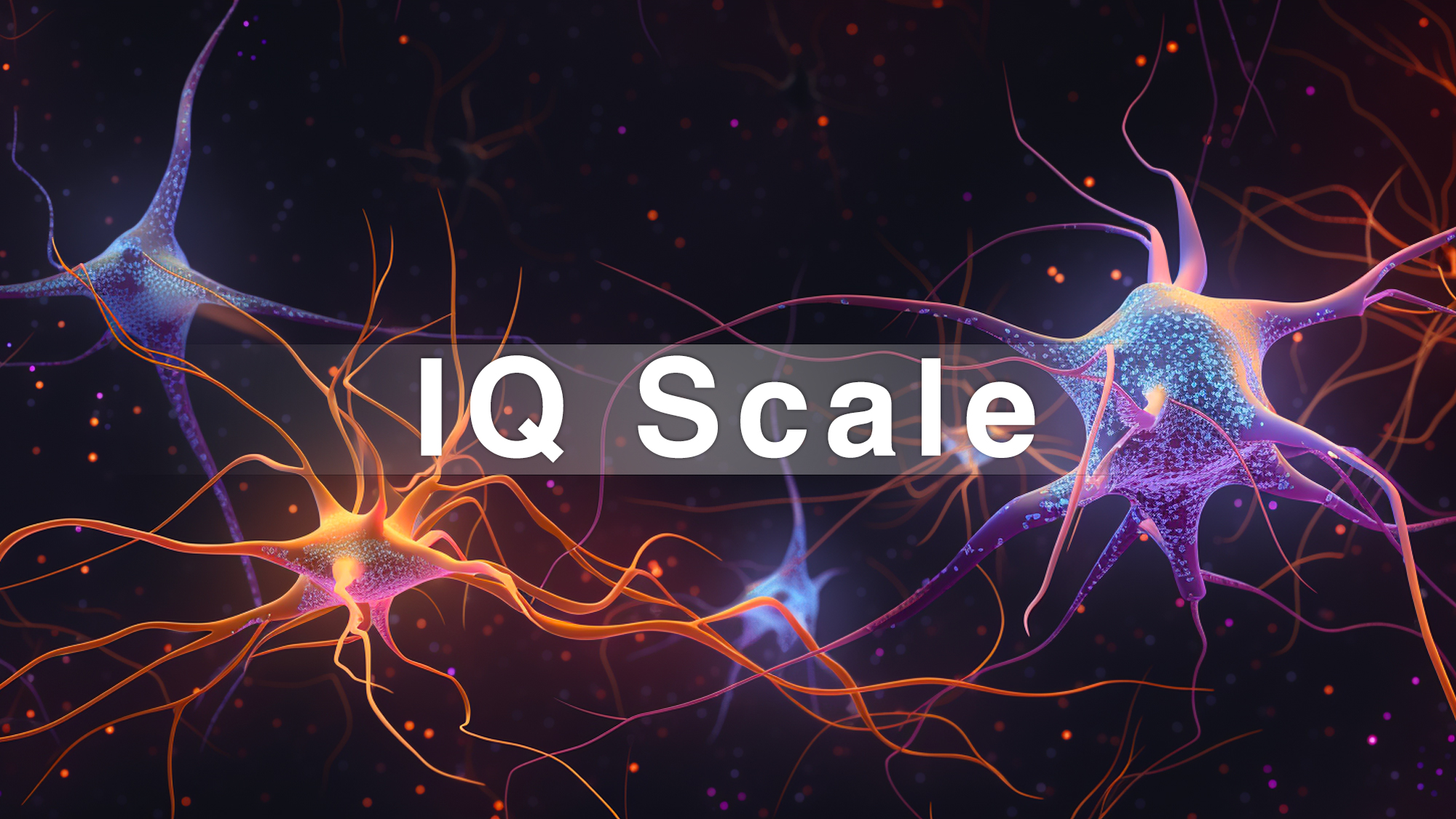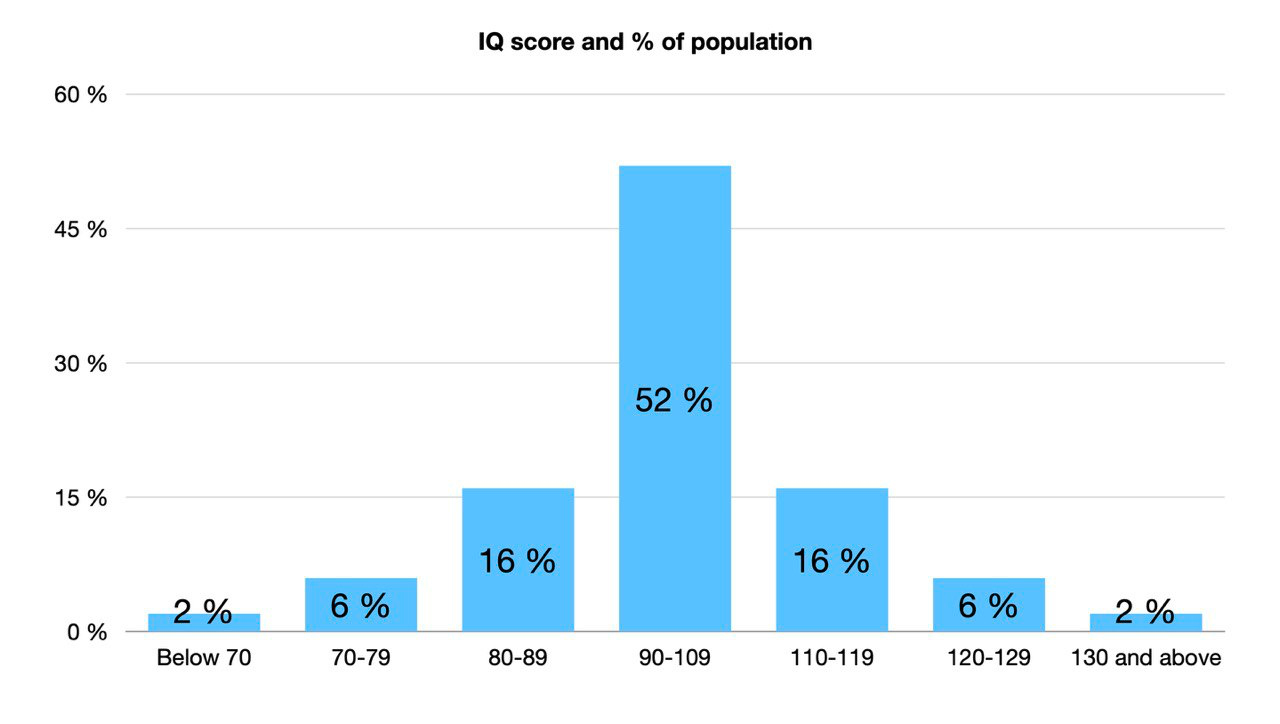In the realm of cognitive assessment and understanding human intelligence, IQ classification stands as a cornerstone. Intelligence Quotient, or IQ, is a measure that attempts to quantify an individual's cognitive abilities. This article delves in to the intricate world of IQ classification, exploring its history, controversies, and contemporary significance in gauging human intellect.

The Foundation of IQ Classification
Origins and Development
The concept of measuring intelligence dates back once again to the first 20th century when French psychologist Alfred Binet pioneered the development of the first intelligence test. Binet's work laid the inspiration for what would later end up being the Intelligence Quotient, a numerical representation of an individual's intelligence relative to their peers. The Stanford-Binet Intelligence Scales, developed in the United States, further refined and popularized IQ testing.
The IQ Formula
IQ is usually calculated utilizing the formula: IQ = (mental age / chronological age) x 100. In this formula, mental age represents an individual's amount of intellectual functioning, and chronological age is their actual age. The result is multiplied by 100 for easier interpretation. A score of 100 is considered average, with scores above or below indicating intelligence levels in accordance with the average.
The Spectrum of IQ Classification
Gifted and Genius
IQ classification places individuals into various categories based on their scores. The highest range, often labeled as "Gifted" or "Genius," encompasses people that have scores well above the average. These individuals demonstrate exceptional intellectual abilities and may excel in fields such as for instance mathematics, science, or the arts. The challenges faced by this group, including educational enrichment and social dynamics, are topics of ongoing discussion.
Above Average and Average
Scores above 120 are usually considered above average, while those around 100 fall into the common range. These individuals may excel in academic settings and have a great grasp of problem-solving and critical thinking skills. Many the people falls within the common range, representing a diverse spectrum of abilities and talents.
Below Average and Intellectual Disabilities
Scores below 90 can lead to categorization as below average, and further down the scale, individuals might be identified as having intellectual disabilities. This classification, however, has faced criticism for oversimplifying the complexity of intellectual capabilities and not accounting for cultural and socio-economic factors that could influence test performance.
Criticisms and Controversies Surrounding IQ Classification
Cultural Bias
One major criticism of traditional IQ tests is their potential cultural bias. Critics argue that the tests may favor individuals from certain cultural backgrounds, potentially disadvantaging those from different socio-economic or ethnic groups. Efforts to generate culturally fair assessments continue, but the process remains in designing tests that truly measure cognitive abilities independent of cultural influences.
Limitations in Assessing Creativity and Emotional Intelligence
IQ tests primarily focus on cognitive abilities linked to logical reasoning, problem-solving, and memory. However, they often are unsuccessful in capturing aspects of intelligence such as for instance creativity and emotional intelligence. Critics argue that relying solely on IQ scores may offer an incomplete picture of an individual's overall intellectual capabilities.
The Single Measure Conundrum
Reducing intelligence to an individual numerical value is a subject of debate. Many psychologists argue that intelligence is multi-faceted and cannot be accurately captured by way of a single number. Alternative models, such as for instance Howard Gardner's theory of multiple intelligences, propose that intelligence encompasses various domains, including linguistic, musical, and interpersonal abilities.

Contemporary Perspectives on IQ Classification
Fluid Intelligence vs. Crystallized Intelligence
Recent research has led to a distinction between fluid and crystallized intelligence. Fluid intelligence involves the capacity to solve novel problems and adjust to new situations, while crystallized intelligence pertains to acquired knowledge and skills. This nuanced approach recognizes the dynamic nature of intellectual abilities and challenges the rigidity of traditional IQ classification.
Neuroscientific Advances
Advancements in neuroscience have contributed to a greater comprehension of the neural basis of intelligence. Brain imaging techniques provide insights in to the neurological processes associated with various cognitive tasks. This interdisciplinary approach supplies a more holistic perspective on intelligence, emphasizing the interplay between genetics, environment, and neural mechanisms.
Beyond IQ: Emotional and Social Intelligence
Recognizing the limitations of IQ tests, contemporary discussions on intelligence extend beyond cognitive abilities. Emotional and social intelligence, popularized by Daniel Goleman, emphasizes the significance of understanding and managing emotions, along with navigating social interactions. This broader conceptualization acknowledges that intelligence encompasses a spectrum of skills vital for success in diverse aspects of life.
Navigating the Future of Intelligence Assessment
Personalized Learning and Individual Differences
As our comprehension of intelligence continues to evolve, the future of cognitive assessment may move towards more personalized and nuanced approaches. Acknowledging individual differences, strengths, and challenges is likely to be crucial in tailoring educational strategies and support systems to meet up diverse learning needs.
Ethical Considerations and Fair Practices
Addressing cultural biases and ethical considerations in intelligence testing remains a priority. Striving for fairness and inclusivity in assessment tools is essential to avoid perpetuating systemic inequalities and to make sure that individuals from all backgrounds have equal opportunities to showcase their intellectual abilities.
Embracing Diversity in Intelligence
As society progresses, the emphasis on diverse types of intelligence becomes more pronounced. Valuing a range of intellectual abilities and acknowledging that every individual possesses unique strengths plays a role in a more inclusive and equitable way of understanding intelligence.
Conclusion
To conclude, IQ classification has played a pivotal role in shaping our comprehension of intelligence during the last century. From its origins in early psychometrics to contemporary discussions on fluid and crystallized intelligence, the landscape of IQ classification is continuously evolving. As we navigate the complexities of assessing human intelligence, it becomes increasingly clear that the comprehensive comprehension of intellect extends beyond numerical scores. Embracing the diversity of cognitive abilities, acknowledging cultural nuances, and recognizing the significance of emotional and social intelligence pave the way for a more holistic and equitable way of intelligence assessment in the years to come.

